Learn how to slide and boogie like Keith Richards on The Rolling Stones' Let It Bleed album
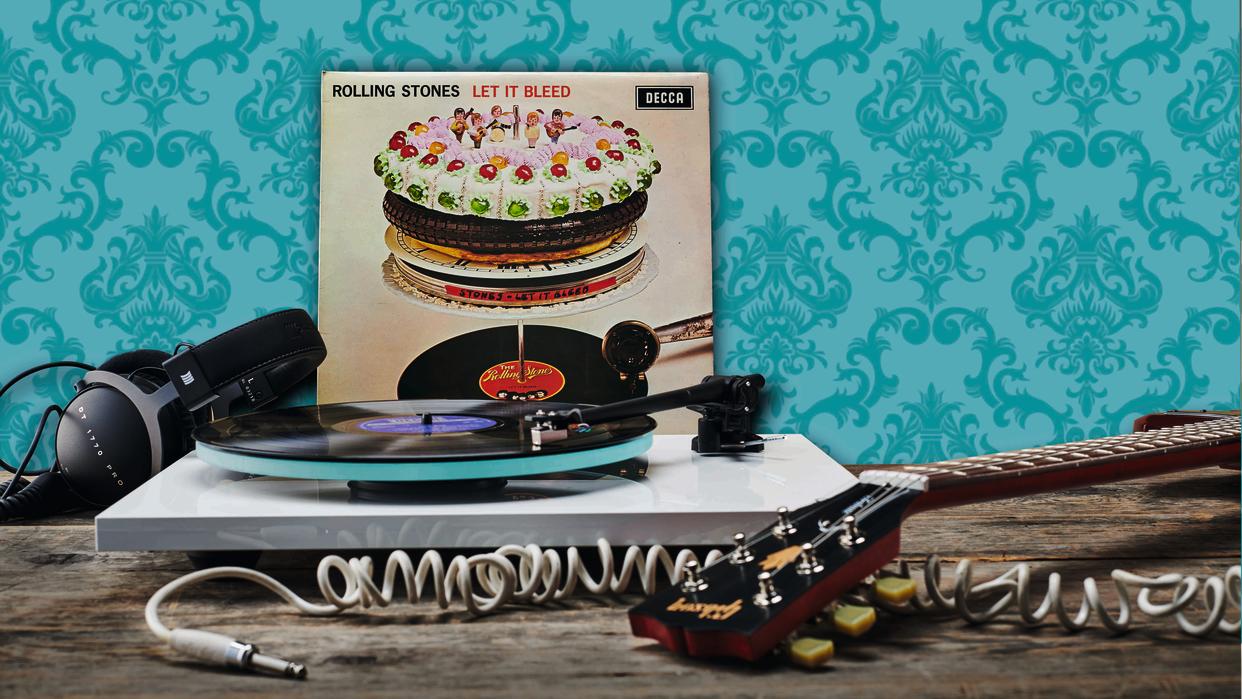
All was not well in the Rolling Stones' camp during sessions for the band’s 10th studio album. Founder member, guitarist Brian Jones was fired from the band, playing on only two tracks, and new boy Mick Taylor would only join in time to record a couple of songs. Yet, despite a couple of oddities (the needless Country Honk is a loosely jammed country-style version of Honky Tonk Women), Let It Bleed delivers in spades on nearly every track.
If you want to get a general feel for Keith Richards’ rhythm style you’ll need to get his boogie riffing rhythm grooves down – just listen to Gimme Shelter, Monkey Man and Live With Me for some good examples.
Let It Bleed is also peppered with slide guitar (generally Brian Jones’ field of expertise and often delegated to Ronnie Wood these days). In fact, there’s slide guitar on most tracks so it’s an essential technique to learn if you want to get the Stones’ bluesy sound of ’69 down.
1. Boogie riffing
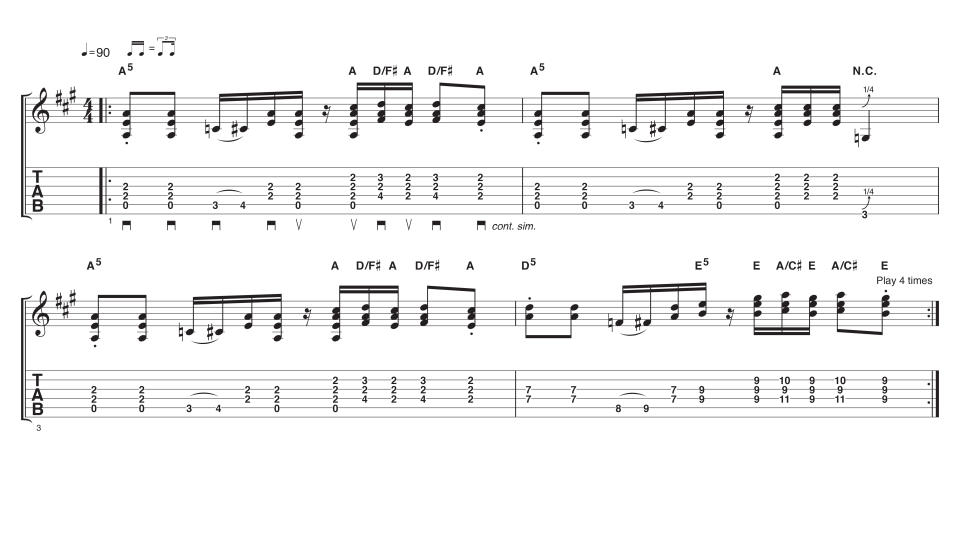
With a return to the Stones’ earlier blues-based style on the cards, it’s no surprise to see Keith’s trademark boogie riffing in songs like Monkey Man, Midnight Gambler and Live With Me. The D/F# and A/C# chords are classic Richards fare. Aim for a good feel, but don’t be too fussy about consistency. Experimentation is the name of the game.
2. Slide guitar lead
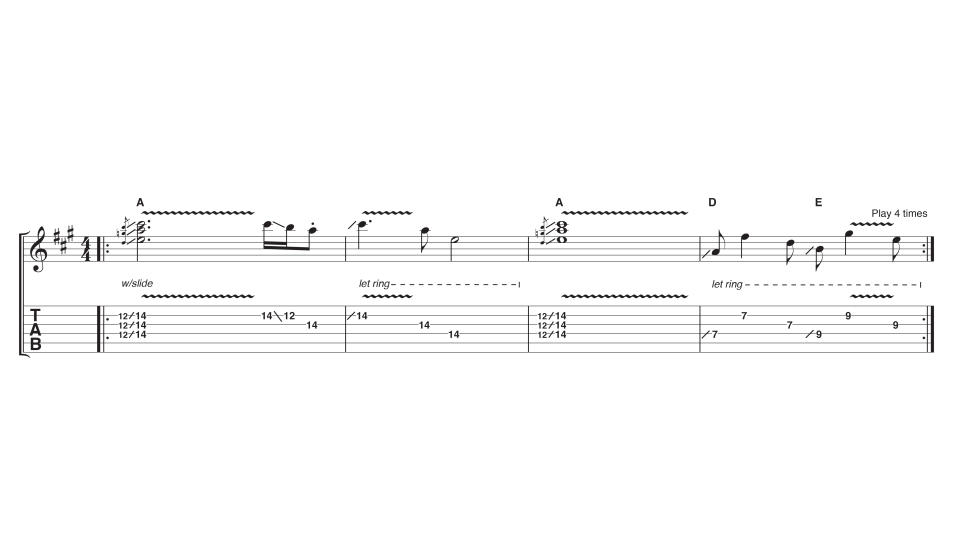
You’ll hear slide guitar on Let It Bleed, Midnight Rambler, Monkey Man and other tracks too. Though often played using open tunings, we’ve opted for standard tuning for convenience here. Make sure to position your slide directly above the fret in question to insure good intonation.
3. Slip sliding away
Cover the basics and take your Stones style slide technique up a level
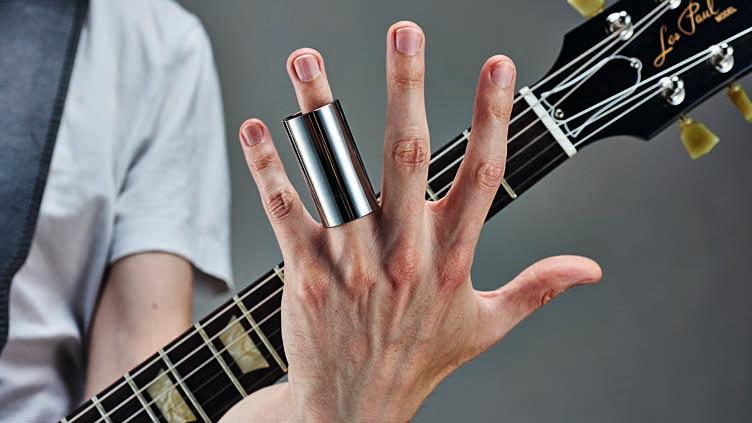
Choose a finger: Generally, your third finger is best for slide. You’ll have a free finger on either side of your slide for regular fretting duties.
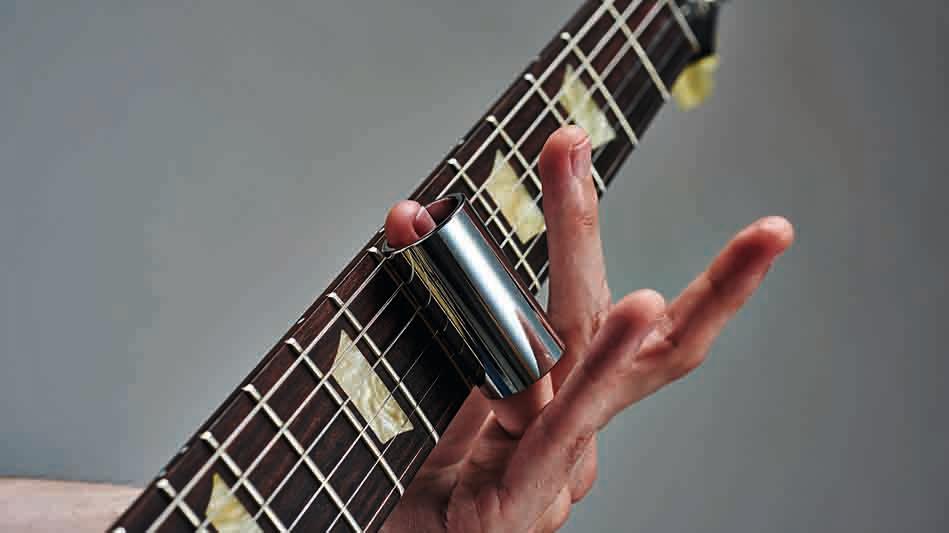
Smack your pitch up: Accurate pitch is key. The frets are where the right notes are, so target your slide directly above the fret of the notes you’re playing.

Mute point: Use your first and second fingers to touch the strings behind the slide to prevent excess noise and keep your licks sounding pristine.
